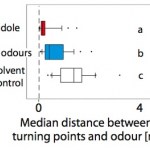Brain and Behavior
Thanks to PZ for the format/inspiration!
Be self-aware. You are the speaker in a room filled with dozens, hundreds, thousands of people. Especially at atheist/skeptic conferences, we are all very interesting people, but out of those dozens/hundreds/thousands of people who could have been chosen to give a presentation, you were chosen. Your opinion and your words are most likely highly valued, because other people want to hear them. Other people want to learn from you. Other people look up to you. Other people have not had the exact same life history, education, experience that you have…
Rebecca Watson did the right thing when she spoke about McGrew's response too her (Watson's) response to the Elevator Guy, and Barbara Drescher's response to all of that is amazing. If you don't know what I'm talking about here, it might be best to move on. Otherwise, here's my two cents (and there are exactly two) about this Matryoshka Moment.
You may recall this post about "Naming Names at the CFI Student Leadership Conference" by Rebecca Watson. Here's the story in a nutshell. First, some guy known as "The Elevator Guy" hit, rather lamely it seems, on Rebecca in a way that one could…
Note from ERV-- Like all posts on ERV, I wrote this one the night before (Thurs) and scheduled it for the next day (Fri). But with this post, I wrote it, but then just saved it, intending to completely alter the tone of the post as I was eating breakfast. But then I woke up to an extremely cognizant, articulate post by Stef McGraw, complete with a shockingly arrogant, jackass comment by Rebecca Watson, and I was like "Ah, no. No 'Full House' heart-warming conversation with Watson. She wanna act a bitch, she gonna get a bitch."
One of these days, theyre going to come for my Vagina License.…
Part One
It appears that the E. coli O104 sproutbreak is starting to wind down, with more than 3,500 cases diagnosed to date and 39 deaths. Though sprouts remain the key source of the bacterium, a recent report also documents that human carriers helped to spread the organism (via H5N1 blog). In this case, it was a food service employee working at a catering company, who spread infection to at least 20 people before she even realized she was infected.
As with many infectious diseases, there are potential lingering sequelae of infection, which can occur weeks to years after the acute…
A version of this post was originally published on my Wordpress blog on March 15, 2010. Click the archives image to see the original post.
Most animals, at some point in their day-to-day lives, face the same problem. After they've gone out in search of food, they need to find their way home. But some of the places where these critters live lack any real visual landmarks - like the open ocean or wide expanses of desert. Instead of relying on vision, some animals have developed the ability to use olfactory (scent-related) cues to aid in navigation. Seabirds can detect subtle changes in the…
As I've laid out this week (part 1, part 2, part 3), the realization that a fairly simple, toxin-carrying bacterium could cause a "complex" and mysterious disease like hemolytic uremic syndrome came only with 30 years' of scientific investigation and many false starts and misleading results. Like many of these investigations, the true cause was found due to a combination of hard work, novel ways of thinking, and simple serendipity--being able to connect the dots in a framework where the dots didn't necessarily line up as expected, and removing extraneous dots as necessary. It's not an easy…
This apologist for religion, James Scofield, has written a bizarre essay titled 5 Myths Atheists Believe about Religion. It's a peculiar screed that assumes atheists are somehow aliens outside religious culture, looking in uncomprehendingly, needing some kind of correction in our perceptions — more so than the religious members of our culture, who are privileged to possess the true and secret information we do not have. Never mind that here in America we are deeply entangled everywhere in religion, tripping over it in our media, our politics, our commerce, and that many of us were brought up…
He's completely lost me again. Brown has a couple of posts up complaining about people referring to mental illness as a "brain disease" and confusing mind with brain — he seems to deplore the growing recognition that the mind is entirely a product of the brain, and that psychology is built on a physical substrate, which leads to what he thinks is a premature reduction of mind to brain. He's not making an argument from dualism, though; the gist of his complaint is that you can't deduce thoughts from the structure of the brain, therefore it's an invalid approach.
That doesn't make any sense. We…
Working backwards through our four reasons to ignore evolution, we have shown that smart people don't necessary converge on the facts of the matter from different starting positions (4) and that reasoning on the basis of design benefits from knowledge about the designing process (3). Here is our next reason for ignoring the E-word (2):
A reasonable research strategy is to study what is, without worrying much about how it got that way. After all, something like the brain is available to be studied in minute detail, whereas how it got that way is more speculative. Why speculate when we can…
NPR's Howard Berkes reported this week on the disposition of criminal and civil charges stemming from the disaster nearly four years ago at the Crandal Canyon mine in Utah. The makings of the catastrophe began months earlier, (previous posts here, here, here) but came to a deadly denouement in the early morning hours of August 6, 2007. An explosive outburst of rock and coal, related to the retreat-mining method in use at the mine, struck (killed) and buried six coal miners: Kerry "Flash" Allred, 57; Don Erickson, 50; Jose Luis Hernandez, 23; Juan Carlos Payan, 22; Brandon Phillips, 24; and…
Here are my Research Blogging Editor's Selections for this week.
"Most neuroscientists would subscribe to the sensorimotor hypothesis, according to which brains mainly evaluate sensory input to compute motor output," writes Bjorn Brembs. But is it possible that the sensorimotor hypothesis is just the result of some laboratory artifacts?
"What happens to a pig if it has a gene for autism?" This is the question that Neuroskeptic addressed earlier this week. Do Pigs Get Autism?
What is it that makes an invasive species so successful at invading a new ecosystem? At NeuroDojo, Zen Faulkes asks…
My interest is in developing a plausible evidence-based story of how modern humans emerged from ancestral species. This means guessing at what features of humans make us "human" and attempting to see the emergence of each of these features in the fossilized record of our bodies (bones) and behaviors (artifacts and archaeological sites). This question has traditionally been treated, inappropriately, as simple. Walking upright, or freeing of the hands, or using tools, or hunting animals, or scavenging from carnivores, violence, provisioning mates, bonobo-ism (a form of erotica, it would seem…
It's happened again.
Remember how I've said time and time again that the anti-vaccine movement is very much like a religion, a cult even? One of the key attributes of religion is an intolerance for heretics, apostates, and unbelievers. The usual approach to unbelievers is either to try to convert them and then, failing that, to shun them (fortunately in most civilized countries Inquisition-like reactions are no longer common) or to skip the attempt to convert them and jump straight to the shunning. More evidence of just how true that is was presented on a silver platter to me at the anti-…
It's all just a matter of calibration. Let me 'splain.
One day I was driving along a suburban street with the sun low on the horizon and the windows covered in rain drops from a sudden sun-shower moments earlier, insufficiently caffeinated and distracted by something. That's when I saw a large black dog transmogrify into a lawn mower. No, seriously, I really did see this. It reminded me of the time I saw a giant UFO over Boston Harbor (details here: The Night I Was Almost Abducted by Aliens in Boston).
What happened with the dog was this: The distraction was a set of children and other…
Mike Adams, the cranky quack naturopath, has been exploring "the field of quantum physics" and "consciousness". He says this in his silly pseudo-documentary, "The God Within", after praising physicists and their selfless search for the truth, all while ghostly equations float by in the video. He does this a lot, panning over equations or showing stock photos of people standing in front of transparent sheets of glass with illegible scribbles all over them; but it's obvious that he doesn't actually understand math, knows nothing about physics, and is just holding this stuff up in front of his…
Knowing what you are destined to blog about on a given night three days beforehand is a two-edged sword. On the plus side, I don't have to worry about writer's block or lack of suitable material to use as fodder for my Insolence, Respectful and not-so-Respectful, and that's usually a good thing. On the other hand, by the time the evening rolls around, my attention can easily stray to other things, and I might not be as enthusiastic about deconstructing the latest example of, for example, anti-vaccine idiocy as I was when I first learned of its impending arrival. Yet not blogging about it…
THE patterns of brain waves that occur during sleep can predict the likelihood that dreams will be successfully recalled upon waking up, according to a new study published in the Journal of Neuroscience. The research provides the first evidence of a 'signature' pattern of brain activity associated with dream recall. It also provides further insight into the brain mechanisms underlying dreaming, and into the relationship between our dreams and our memories.
Cristina Marzano of the Sleep Psychophysiology Laboratory at the University of Rome and her colleagues recruited 65 students,…
What is learning?
Most psychologists (indeed, most people in general) would agree that learning is the acquisition of new knowledge, or new behaviors, or new skills. Hungarian psychologists Gergely and Csibra offer a deceptively simple description: "Learning involves acquiring new information and using it later when necessary." What this means is that learning requires the generalization of information to new situations - new people, objects, locations, or events. The problem is that any particular piece of information that a human or animal receives is situated within a particular context…
Via USA Today, we learn about a study showing that people who meditate frequently behave in a more rational manner than non-meditators, and they do so because different parts of their brain take charge of certain kinds of decisions.
The study was based around a common test of rational behavior called the Ultimatum Game. Two people sit at a table. One of them is given a sum of money ($20 in this case), and is told to split that however she wants with the other. Before she makes that decision, the other subject is told that if he rejects the share offered to him, neither player will get any…
NatGeo had a pretty sweet program on the other night on viruses! I guess they made it like a couple years ago, but I somehow totally missed it!! If you read ERV, there was probably nothing new there for you, but its neat to *see* the scientists I talk about portrayed as creepy guys talking to themselves in deserted diners, surrounded by 3-inch-tall dancing chimpanzees.
ROFL!!!
National Geographic Explorer: The Virus Hunters
Few things I want to say--
Scientists do not all work in poorly lit rooms surrounded by tubes of bubbling colored liquids. Sometimes there are lasers and radioactive…



